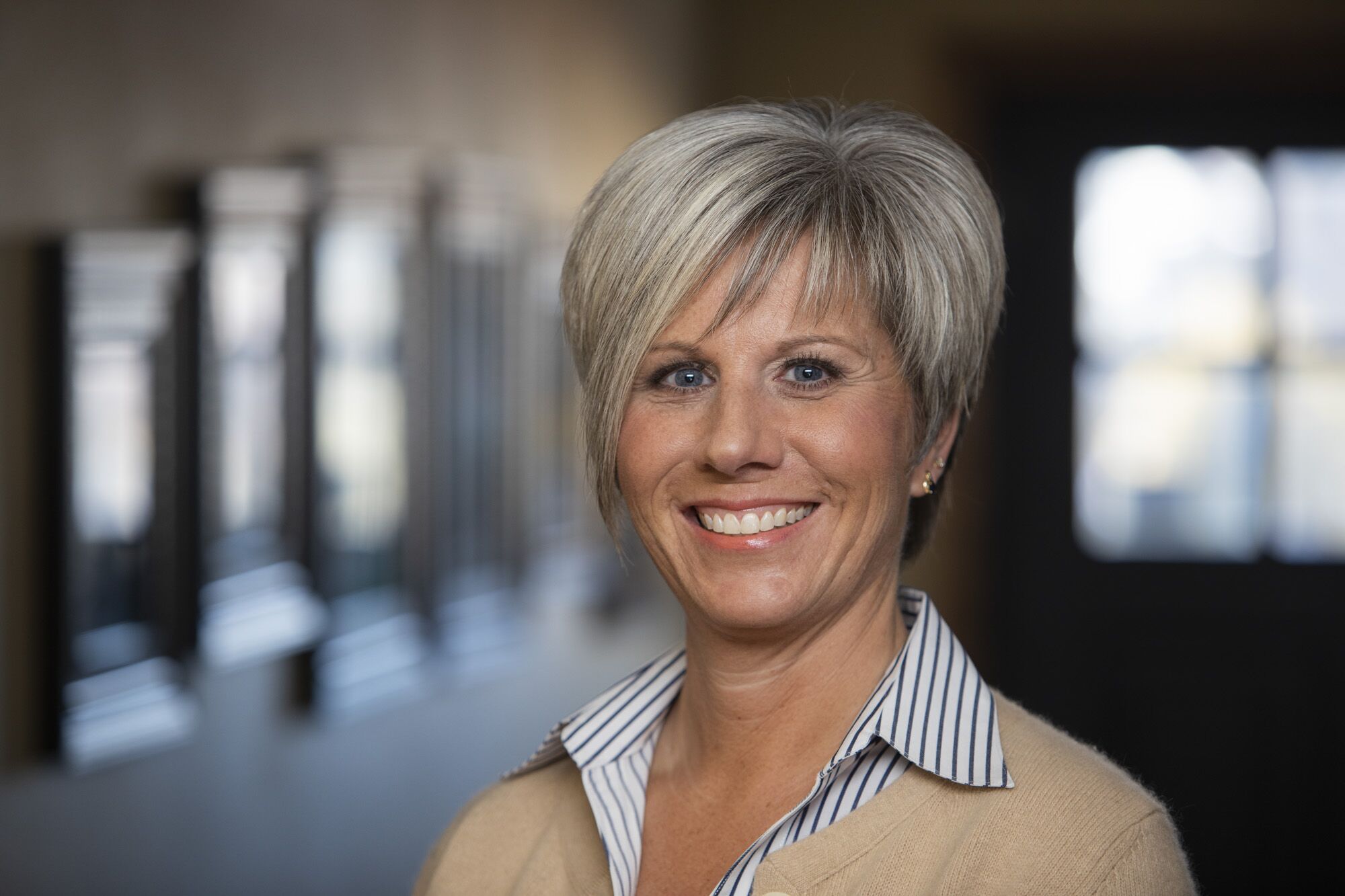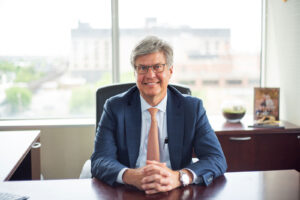While September is Childhood Cancer Awareness Month, research to find a cure is a critical year-round mission. “Pediatric cancer research is woefully underfunded,” says Becky Pinter, president and CEO of The Midwest Athletes Against Childhood Cancer (MACC) Fund. The Milwaukee-based nonprofit is working to change this reality.
The MACC Fund contributes funding for research to help find a cure for childhood cancer and related blood disorders. Since its founding in 1976 by Milwaukee Bucks sportscaster Eddie Doucette and Bucks player Jon McGlocklin, the organization has contributed over $70 million to this cause. The MACC Fund supports research at hospitals including the Medical College of Wisconsin, the Children’s Hospital of Wisconsin and the University of Wisconsin Carbone Cancer Center.

When the MACC Fund was founded over four decades ago, the cure rate for childhood cancers was only 20 percent, according to Pinter. Today, with help from the organization’s contributions, the cure rates for some leukemias are as high as 90 percent. But even with this remarkable progress, the organization continues its mission to achieve even greater success for that portion of children who are not yet included in the cure rate. Pediatric cancer is the leading disease-related cause of death among children, Pinter notes.
In 2019, the MACC Fund embarked on a $25 million campaign in partnership with the Medical College of Wisconsin and the Children’s Hospital of Wisconsin. Pinter explains that through this initiative, the partners are working toward “the next frontier in pediatric cancer research.” With the MACC Fund’s contributions, she says, there is hope that the fight against pediatric cancer and blood disorders will change dramatically over the next decade through technology advances and new breakthroughs.
In addition to funding research to ultimately find a cure, the MACC Fund’s support also helps hospitals address issues that childhood cancer thrivers often experience after treatment. Pinter explains that addressing the quality-of-life issues that can occur after going through cancer is also critically important.
Much of the MACC Fund’s contributions for research are raised through special events. These include its annual Trek 100 cycling event, which is normally held in Waterloo, Wisconsin, the hometown of Trek Bicycle Corporation. As the MACC Fund’s largest event, the Trek 100 typically raises around $1 million. The event pivoted to a ride-from-home event in 2020 and 2021, but organizers hope for a return to the traditional in-person ride next year. The fundraising total for the 2021 event is currently over $800,000, and fundraising will continue through the end of September to hopefully reach the $1 million goal.
Businesses, groups and individuals interested in supporting the cause are encouraged to help organize or volunteer at fundraising events benefiting the MACC Fund. “Anything that people can do to help get the word out about the MACC Fund to help fund pediatric cancer research is very appreciated,” Pinter says. The organization’s website provides information about upcoming events as well as inspiration for those wanting to raise funds through their own events.
“The more money we raise, the faster we can get that to our researchers, which means faster outcomes and protocols for those kids that really need it,” Pinter adds.

Counting nearly 14 years on staff at the MACC Fund, and about 15 years of volunteering with the organization prior to that, Pinter explains that the work and mission of the MACC Fund is integral to her life.
“This isn’t just a job for me. This is my life,” she says. “I wake up each morning and want to come to work. I want to help raise money, I want to be with these kids and families and do our absolute best so that these kids do survive […] I love to do what I do.”
For more information about the MACC Fund, visit www.maccfund.org.







